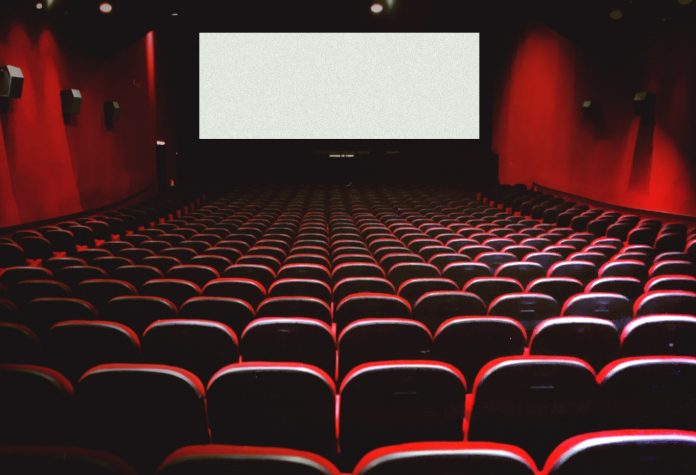This article is written by Kartik Bohra, Symbiosis Law School, Hyderabad. In this article, the legal and technical aspects of copyright laws in the Entertainment industry and the impact of copyright laws in the media industry has been discussed.
Table of Contents
Introduction
The entertainment industry in India is considered as one of the biggest in the world. This industry has significantly increased its growth in recent times and is considered as one of the fastest-growing industries in India. Copyright is defined under Section 14 of Copyright Act, 1957 as an exclusive right over the material or work and right to do or authorize the doing of any work. Copyright and all the other rights under Intellectual Property Rights (IPR) are very prominent in the entertainment industry in the present scenario. It provides legal protection and prevention of innovative works or unique creations. Copyright works as an interface in the entertainment industry with the film, photography, sculpture, drawing, recordings, etc. Creative works and expressions are not a new phenomenon in society but the difference is that in the present scenario, the significance is given to the protection of these words and expressions.
The intangible rights which protect and prevent such creative works and expressions are cooperatively known as Intellectual Property Rights (IPR). Copyright is generally the significant part of IPR which protects certain rights of producers for their creative works. These works include film, storyline, music, artwork, and literary works. Such works need protection from piracy in the market. But nowadays, it is very hard to keep all the track records of infringement of copyright. Copyright piracy in the entertainment industry is a threat to artistic works and expressions. Piracy means unauthorized use of original work of the producer which is protected by copyright. The motion pictures stated that India is the biggest hub for piracy videos and audios in the world. It is believed that the global entertainment industry in the form of online platforms would lose around 51.6 billion U.S dollars due to copyright piracy in 2022. It is generally considered that India has weak Intellectual Property Rights (IPR) norms due to which the entertainment industry is suffering in India.
What constitutes copyright infringement
Copyright infringement can be defined as the unauthorized use of someone’s copyrighted work. It is the use of material that is generally protected by copyright without the authorization of the material holder or copyright holder. It generally means the right to exclusive use of a product or material of a copyright holder is being breached by someone without their permission. The entertainment industry which includes movies and music mostly suffers due to copyright infringement. Copyright is infringed if the material or a substantial part of it can be used without the permission of the real owner.
In general terms, it is the infringement or violation of a person’s Intellectual property (IP). Copyright infringement can also be defined as piracy of the creation and original work of the producer and benefits out of the material. Section 51 of the Copyright Act specifies the infringement of copyright.
How copyright laws impact the media industry
Copyright is a tool used by the entertainment and media industry to protect their original work in the long run so that no one has access to it without their permission. The material is protected by copyright and the owner of the material has exclusive right to use it. Nowadays, a lot of competition has been emerging in the entertainment industry due to which it is necessary to get copyright of the origin material. The lack of copyright on the material may cost huge losses to the author or the creator.
The media and entertainment industry is largely impacted by copyright as it is necessary to protect and prevent the original work of the creator. In the present scenario, the growth of technology leads to an increase in the piracy of the original work which results in loss to the owner. Thus, there is a need to protect the original work of the owner from copyright piracy so that one could not have access to the original work of the owner without their permission or authorization. Thus, it is necessary for the owner to have exclusive rights over the work or material in the entertainment industry.
Interpretation of Copyright Infringement by Indian Courts
Indian courts have given certain parameters to test and determine which works can be safeguarded under copyright law in India. It is also stated that only for these works an owner can claim the damages for infringement.
In the case of R.G Anand v. M/s Deluxe Films (1978), the Apex court, in this case, opined the following in relation to copyright infringement:
- The person cannot claim copyright on an idea, subject matter, plot, theme, and historical facts and infringement of the copyright in such cases are limited to the expression and arrangement used by the author of the copyrighted work.
- It is possible where the same idea can be developed in a different style, it is assumed that the source is common and it is quite possible to occur. In order to claim damages for infringement, the piracy must be substantial and material and it can be determined that the defendant is guilty of copyright violations.
- It can be the case of copyright infringement where it prima facie appears to be that both the works are undoubted of the opinion that the later work appears to be pirate of the original one.
- There is no issue of copyright infringement arises where the theme of the work appears to be the same but is expressed differently and becomes a new work.
- The question of copyright infringement will not arise if it is proved that the two works are circumstantial and it is clearly the coincidences.
In the case of Zee Telefilms v. Sundial Communications Private Limited (2003), the Bombay High Court laid down two guidelines to determine the case of copyright infringement:
-
- Average Viewer test: in this test, the impression that is being created in the minds of the viewers is taken into consideration and if it can be inferred by virtue of the said impression that the later work is piracy of the original work of the creator then the act is copyright infringement.
- The Substance assessment test: this test assesses the importance of the copied or pirated portion on the rest of the work. If the remaining work can be sustained without the pirated part then it is not the case of copyright infringement but if the copied part is so integral that the whole work would lose its meaning if it is removed then it is considered to be the infringement of copyright and damages must be paid to the original owner.
Copyright Piracy
The technology is growing at a faster rate in India and the world has entered the period of virtual and instant communication. Copyright piracy is an observable fact which is present everywhere in the world. Piracy generally defined as duplication or unauthorized use of original material of the owner without their consent or approval which is protected by copyright laws. It can be production, distribution, and importing of original work. The owner or author of the material enjoys certain benefits which also includes his exclusive right over the material. He has certain rights to publish, to translate, to distribute, to sell, and to perform in public. If any person tries to obtain these rights over the product without the permission of the owner of the copyrighted product then it will amount to piracy of copyright or infringement of copyright.
Copyright piracy not only adversely affects the economic loss but also affects the creative thinking of people in society. There are various ways through which piracy can happen in India. There is various computer software that can be easily pirated into another machine without legal authorization. In the entertainment industry, a performer’s right can be easily violated if the video is recorded by an unauthorized person and sold in the market. In cinematographic work, piracy can be possible if someone without the permission of the real owner makes the reproduction of the film and displays it through other mediums of communication. Thus, we can say that there are numerous ways through which piracy can be possible for copyrighted products or work. Therefore, it is necessary to discuss the role of copyright laws in India to curb the pirated works and understand the nature of piracy in the copyright industry.
Offences and penalties
The infringement of copyright cases is punishable under the Indian Copyright Act, 1957. The provisions enshrined under the act put the heavy penalties and fines on infringement of copyright. Section 63 of Copyright Act, 1957 provides punishment for an infringement of copyright. The burden of proof always lies on the prosecution to prove the guilt. The Copyright (Amendment) Act, 1996, enhanced the punishment for copyright and prescribes imprisonment to the offender which may be extended for a minimum period of 6 months to a maximum of 3 years, and penalty in terms of fine should not be less than Rs.50,000 to Rs. 2 lakhs.
Intellectual Property Rights (IPR) also provides for the punishment of infringement and violation of copyright laws in India. Increasing the use of unscrupulous activities in IPR’s leads to strict penalties against copyright infringement in India. Copyright infringement generally gives criminal as well as civil remedies to the owner. If copyright is infringed, the owner has the exclusive right to bring an action against the person who infringes his work and recover damages or an account of profits. The infringer must have to pay the damages to the owner for money lost or spent due to the copyright infringement.
In special circumstances, copyright infringement can also come under the purview of criminal law and be taken as a criminal offence. Fines and imprisonment are possible penalties in criminal offence of copyright infringement. However, in the case of Cheran P. Joseph v. K. Prabhakaran Nair, (1967) the Karnataka High Court held that “a criminal court may not give a finding on the question of infringement if the suit is pending before the civil court.
Remedies for copyright infringement
Generally, there are two types of remedies available to the owner in case of copyright infringement are:
- Civil Remedies
- Criminal Remedies
Civil Remedies for Copyright Infringement
Civil remedies for copyright infringement are defined under Section 55 of the Copyright Act, 1957. There are various civil remedies available to the owner are:
Interlocutory Injunctions
The significant remedy available to the owner in case of infringement of the copyright of his original work is interlocutory injunctions. In most of the cases, an interlocutory injunction is granted against the infringer and the case rarely goes beyond it. There are certain requirements to avail the benefit of the interlocutory injunction- firstly, the case must be a prima facie. Secondly, there needs to be a balance of convenience. Lastly, there is a requirement of irreparable injury to the owner.
Pecuniary Remedies
The owner of the original work can also seek three remedies under Section 58 of the Copyright Act, 1957. Firstly, profits were made by the person during unlawful conduct. Second, compensatory damages awarded to the owner which he suffered due to the infringement. Lastly, conversion damages are determined by looking at the value of the product or work.
Anton Pillar Orders
It involves certain procedures which are as follows- first, a prima facie injunction on the distribution of work by restraining the infringer from destroying or infringing it. Second, an order was given to the plaintiff’s lawyer to search the place of the defendant and take custody of goods or products. Third, an order through which the defendant is liable to disclose the names of distributors and consumers.
Mareva Injunction
This injunction is used against the defendant when the court of law observes that the defendant is trying to delay the proceedings and obstructs the execution of the decree passed against him. The court of law has the power to order the defendant to place the property partly or wholly under the court’s disposal to satisfy the decree of the court.
Norwich Pharmacal Order
This order is passed against the defendant when any information is required from the third party.
Criminal Remedies for Copyright Infringement
There are different criminal remedies available under the Copyright Act, 1957 for infringement:
- Fine or penalty which may not be less than 50,000 and can be extended upon 2,00,000.
- Imprisonment which may not be less than 6 months and may extend up to 3 years.
- Search and seizure according to the procedure of infringing goods.
- Delivery of the infringing property or goods to the real owner.
Recent developments
In recent periods, there is a huge requirement of Intellectual property rights in India due to the growth of the market and technology. India has been trying to develop a good administrative system in the field of IPR. The entertainment and media industries are trying to establish their connection as per the standards of Global Intellectual Property norms. This can be seen in the latest amendments and developments made in the Intellectual property rights in India. Indian Government has been trying to set up computerized offices for the IPR’s based on the US patents model. The government recently made changes in the patent procedure which will ease and expedite the process of filing patents in India.
India is rapidly focusing on the globalization and liberalization of international trade practices. It is continuously making progressive steps towards the commitment to the WTO under the trade-related Intellectual Property Rights Agreement (TRIPS). Certain amendments were also made to the workings of copyright laws in India to make it easy and compatible. The amendments were brought in the copyright laws of India to comply with the WIPO Copyright Treaty (WCT). These amendments were made to the Indian copyright Act to help deter continuing piracy in India, especially in the entertainment industries.
Further developments and amendments were brought to make progressive growth in the field of Intellectual Property Rights (IPR). There were changes made to the copyright laws against infringement and piracy by making more stringent laws and administrative framework. The developments were also made in regards to providing faster criminal proceedings, increasing punishment for infringement, and destroying infringing products.
Copyright laws in the entertainment industry around the globe
The Indian media and entertainment industry has been developing in terms of content generation and technology. The regulation of intellectual property rights in India is important to safeguard the rights of the owner in terms of his content and infringement of copyright. IP rights have a significant role in society as it prevents and protects the original work of the creator and ensures dissemination of genuine work. The media and entertainment industry is the fastest growing industry in the world and in India, it is estimated to produce revenues approximately INR 2.35 trillion (US$33.6 billion) by 2021.
The media and entertainment industry has also played a vital role in increasing employment in the world. The copyright in the U.S is governed by the Copyright Act of 1976. There are numerous treaties and agreements which protect the rights of owners against copyright infringement globally. Generally, those conventions are considered as protection from copyright piracy across the world. The Berne Convention for the prevention and protection of artistic work is considered as one of the most important treaties to safeguard against copyright violation. Almost all the countries are part of Berne’s convention. Thus, there are different treaties and conventions to protect the rights of original owners against copyright infringement across the globe in the entertainment and media industry.
Conclusion
To sum up, the significance of copyright norms is to protect and safeguard the work of the creator and provide some economic benefits to him in the long run. The scope of copyright has been extended up to the entertainment and media industry. Copyright has a lot of significance in the field of the entertainment industry as it protects several rights of the creator and helps him to add more values to the original work without being afraid of piracy. The rules and regulations of legislation and the executive are too broad to catch up with the technological means in society. There is a need to balance all stakeholder’s rights.
The entertainment industry needs to be protected against unscrupulous activities which are increasing day by day at an alarming rate in society. The entertainment industry must take certain preventive measures to safeguard against the challenge faced by piracy. Thus, significance should be given on the effective and efficient implementation of copyright laws in the entertainment industry. The existing laws on copyright infringement must be strictly followed with no biases. There should be an implementation of criminal sanctions against digital piracy as it is one effective way to curb these practices. It is needed in India to aware people of the copyright laws and to strengthen the copyright regime. The growth of Intellectual Property Rights in the entertainment industry is required for the extension of artistic and creative work in the industry.
References
- http://copyright.gov.in/Documents/STUDY%20ON%20COPYRIGHT%20PIRACY%20IN%20INDIA.pdf
- https://shodhganga.inflibnet.ac.in/bitstream/10603/61938/12/12_chapter%205.pdf
- https://blog.ipleaders.in/copyright-infringement/#:~:text=Copyright%20infringement%20refers%20to%20the,or%20perform%20the%20protected%20work.
- https://www.mondaq.com/india/media-entertainment-law/711344/toils-and-turmoil-of-media-entertainment-sector
- https://www.legalteamusa.net/copyright-infringement-and-the-entertainment-industry/
LawSikho has created a telegram group for exchanging legal knowledge, referrals and various opportunities. You can click on this link and join:
 Serato DJ Crack 2025Serato DJ PRO Crack
Serato DJ Crack 2025Serato DJ PRO Crack










 Allow notifications
Allow notifications


